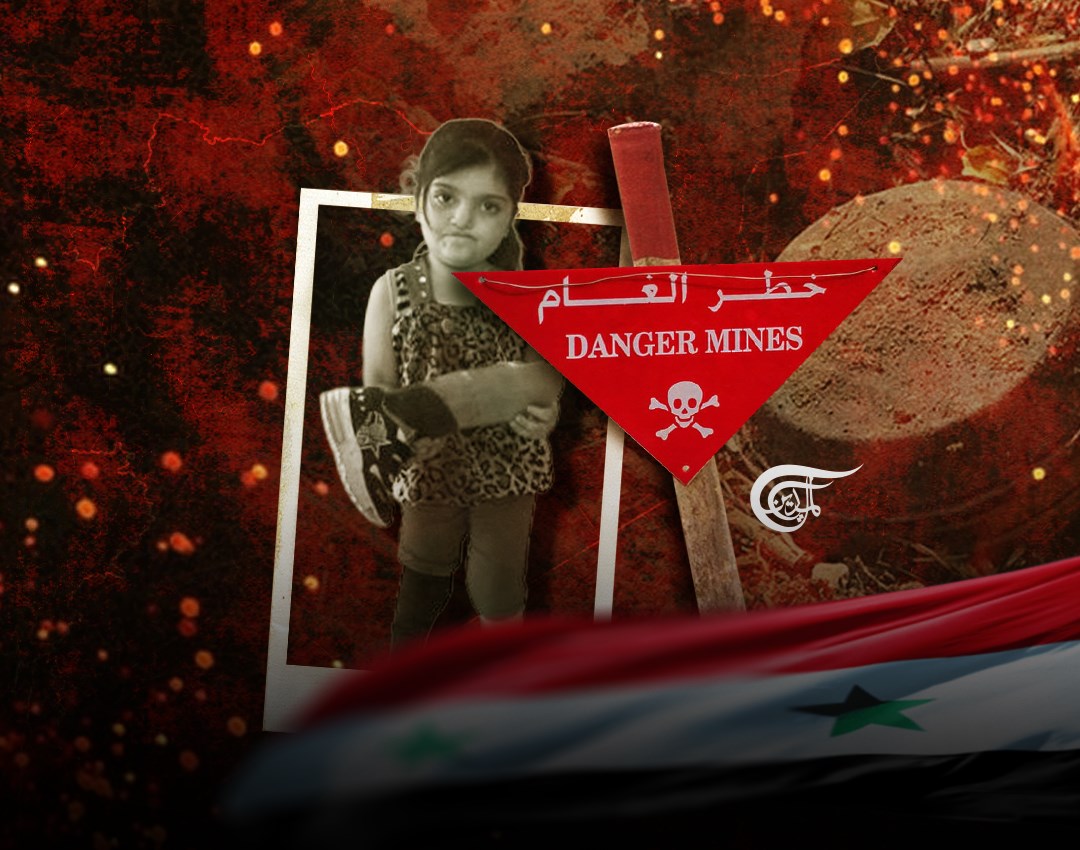Syrians face delayed death after war due to spread of mines
Despite the contribution of some countries, such as Armenia and Russia, in sending specialized teams to remove mines from some Syrian regions, Damascus is still facing illegitimate unilateral coercive measures.
The sound of military battles in Syria has subsided after more than eleven years of war, but large areas of the country are now full of mines.
And with the return of a number of displaced people to their cities and regions in recent years, the contamination of these places with unexploded ordnance has become a threat to their lives.
Not a day goes by without reporting accidents in the countryside and cities of Syria, resulting in deaths that do not spare anyone (farmers, shepherds, scrap collectors, and children on the way to school...).
Even in cases of non-fatal injuries, today tens of thousands of people live trying to overcome their permanent disabilities caused by exploding munitions, and thousands more live with the psychological trauma of the war scars left on the bodies of their loved ones.
Despite the contribution of some countries, such as Armenia and Russia, in sending specialized teams to remove mines from some Syrian regions, Damascus is still facing illegitimate unilateral coercive measures. Some countries are trying to impose constraints to block any support in the field of mine clearance.
The National Committee for Demining in Syria held its first meeting last year under the chairmanship of Foreign Minister Faisal Al-Miqdad, who announced that the Syrian Arab Army had cleared more than 55,000 hectares of the Syrian Arab Republic from mines and explosive ordnance and removed more than 50,000 explosive devices, 84,000 unexploded ordnance, and 45,000 various mines.
Bloody truffle seasons
With a trembling hand, Umm Ibrahim waves from the balcony of her house in the city of Salamiyah in the countryside of Hama to bid farewell to her family members who, at the crack of dawn, accompanied by their relatives, drove a small truck toward the desert of the eastern countryside to harvest truffle.
She sat, pushing her crutches aside, and told Al Mayadeen English, “We are seasonal agricultural workers. we eagerly await the truffle season because it is our source of livelihood. Truffles are expensive and difficult to find, so we must search for them in the desert because it is wild and not cultivated.”
The fifty-year-old woman, who suffers from phantom limb syndrome, is always worried after her leg was amputated in a mine explosion emplaced by ISIS while she was searching for truffles.
“This season used to be associated with joy and family gathering at work, Now as you see, I became alone at home, and I’m not able to work anymore. I feel like I’m being haunted by the possibility that someone may be harmed or killed. I don’t want my relatives to face what I’ve already experienced," she said.
Umm Ibrahim finds it difficult to recall what happened to her, as it “passed in the blink of an eye,” as she put it.
“It was almost midday. I was carrying in my basket the truffles I had collected, and there were many workers around me. Suddenly, I flew into the air and then fell down to find myself in the hospital. I didn’t know what happened, but I later discovered that someone had stepped on a mine, I was lucky to be alive, compared to 33 people who lost their lives on that ominous day."
The woman’s family will help her save an amount from the revenues of this season so that she can go to the capital, Damascus, to have a prosthesis fitted. She wiped her tears and said, “Every season, there will be inevitably new victims."
“I lost my leg because my family was enduring the hardships of life," she explained.
Deadly gifts for children
“Have you seen my new hand?” With this phrase, Aya talks to everyone who visits her family’s home in Al-Sanamayn in the countryside of Daraa.
The girl, holding a toy in her uninjured hand, tells Al Mayadeen English, “I haven't learned to use the prosthesis well yet, but I expect that I will get rid of those who bully me at school soon."
Aya looks at the prosthesis sadly and continues, “It is true that its color doesn’t match my skin color, but I will change it every year.”
Aya points with her prosthetic limb to the far field in front of the house and explains, “Last year, I was collecting firewood as usual, and I found a piece of metal that looked like a water tap. I picked it up, and afterward, I found myself in the hospital with an amputated hand."
Aya's mother enters, carrying a dish of traditional local sweets, and says, “It is not only my daughter who was hurt. My brother also lost his life because of a mine when he was cultivating his land for potato planting. We are farmers, but we have never encountered such things before. Everything happened after we returned to our lands that were liberated from ISIS terrorists."
The forty-year-old woman does not hide her fear of “deadly gifts", according to her description, and she concludes, “I warn my children at least three times a day against touching any foreign objects, but is this enough? Unfortunately, no maps are available to avoid landmines!”
8.2 million people in Syria are at risk of being hit by mines
Syrians receive daily awareness messages on their mobile phones, such as: “Unexploded ordnance is dangerous. Do not touch, do not approach, protect yourself, report it immediately."
Numerous awareness campaigns have also been launched and implemented by some non-governmental organizations. Despite this, the lack of social awareness of the dangers of mines and other remnants of war remains enormous.
In September 2018, the United Nations Mine Action Service/UNMAS estimated that the number of Syrians at risk of mines stands at 8.2 million.
Dr. Zaher Hajjo, Director of the General Authority for Forensic Medicine in Syria, confirmed to Al Mayadeen English that more than 300 victims were recorded last year due to the explosion of mines left by terrorists.
The recorded numbers were distributed between Damascus, Aleppo, Daraa, and Hama. There are no statistics yet in the governorates of Raqqa, Deir Ezzor, and Idlib, given that parts of these governorates are still outside the control of the Syrian government.

 Sara Salloum
Sara Salloum
 5 Min Read
5 Min Read












